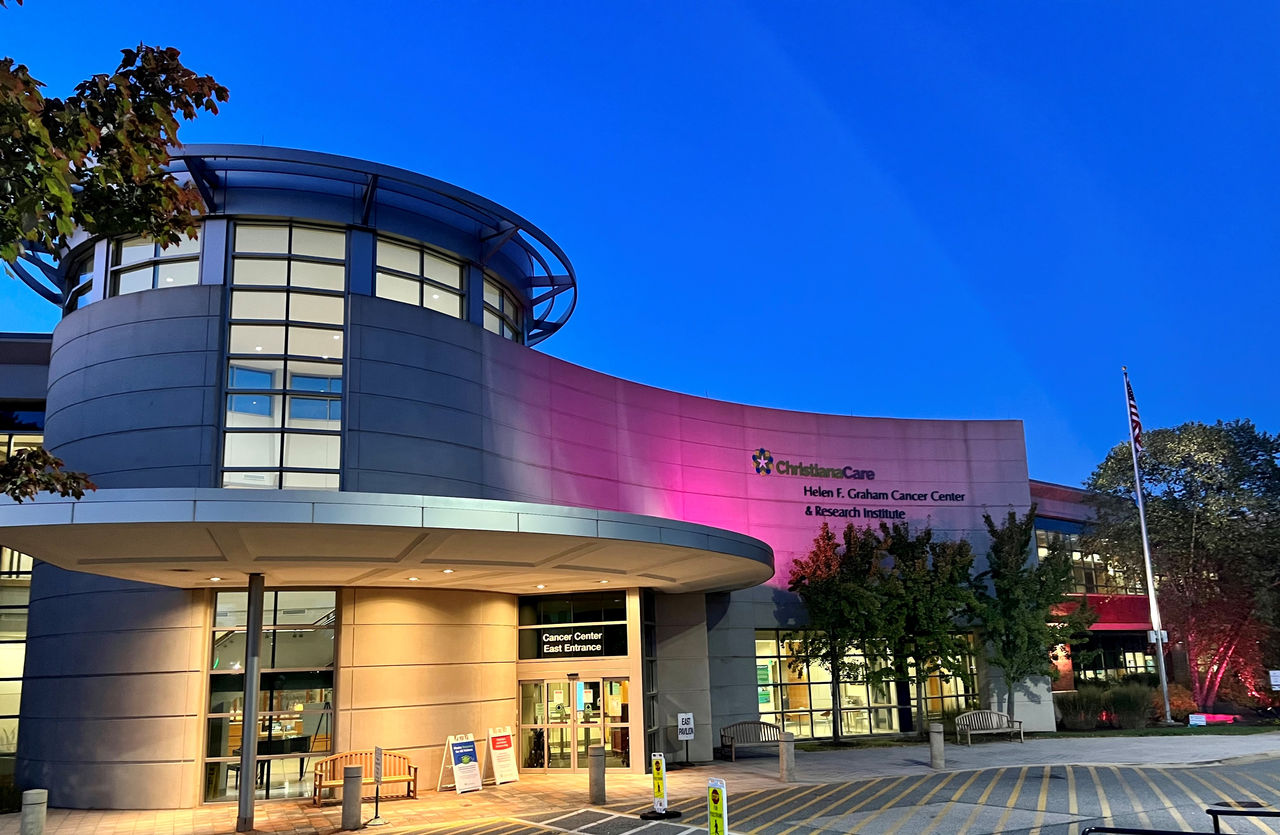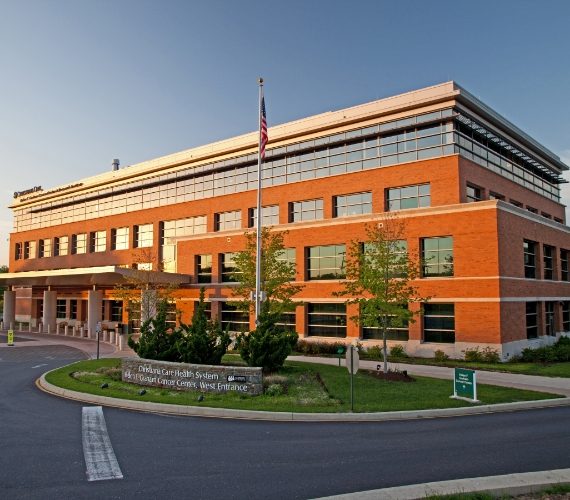Login
About Helen F. Graham Cancer Center & Research Institute
With a cancer diagnosis, you need the right team. You’ll find it here.
Most Advanced Cancer Center in The Country
If you or a loved one is facing a cancer diagnosis, the Helen F. Graham Cancer Center & Research Institute offers strength on all fronts: life-saving treatment options, multidisciplinary team care, cutting-edge research and ongoing support during and after treatment.
The Graham Cancer Center is one of the most advanced cancer centers in the country — with 248,000 annual patient visits and counting — making it a top choice for people in Delaware and surrounding states.
Our Multidisciplinary Team Approach: Working Together, For You
With a cancer diagnosis, you need the right team. You’ll find it here.
The 240,000 square-foot Graham Cancer Center is a multidisciplinary cancer center, or MDC, which means an entire team of our highly skilled specialists work together to create and implement a treatment plan as unique as you. You’ll have a fully dedicated team that may include oncologists, surgeons, nurse navigators, social workers, and clinical research nurses to help connect you to cutting-edge treatments and the latest clinical trials.
Multidisciplinary care also means convenient, efficient care. You can see three disciplines of surgical, medical and radiation oncology, including subspecialists and support service teams, in a single visit. Explore the types of cancer we treat.
Leading Technology
Clinical Trials: Cancer Research That Benefits You
ChristianaCare’s cancer clinical trials program actively pursues today’s most promising studies for the prevention and treatment of cancer. When you join a cancer research study, you benefit from techniques and therapeutic advances that are at the vanguard of medical science. At the same time, you are helping to improve our knowledge in ways that will help people with cancer live longer and enjoy a better quality of life.
The Helen F. Graham Cancer Center & Research Institute enrolls seven times more patients in National Cancer Institute clinical trials than the national rate. We have received several national awards for our record-breaking success in enrolling patients in clinical trials. At any given time, we have at least 700 patients enrolled in as many as 130 different clinical trials. For our patients, this success means that they have access to the best treatments and procedures available to fight their type of cancer.
Pushing Boundaries With Research
We offer hope and a promise to fight with you.
Exceptional Care, Exceptionally Close.
Hospital Views
Useful Links
-
Cancer Types We Treat -
Cancer Treatments -
Cancer Support Services -
ChristianaCare Specialty Pharmacy




